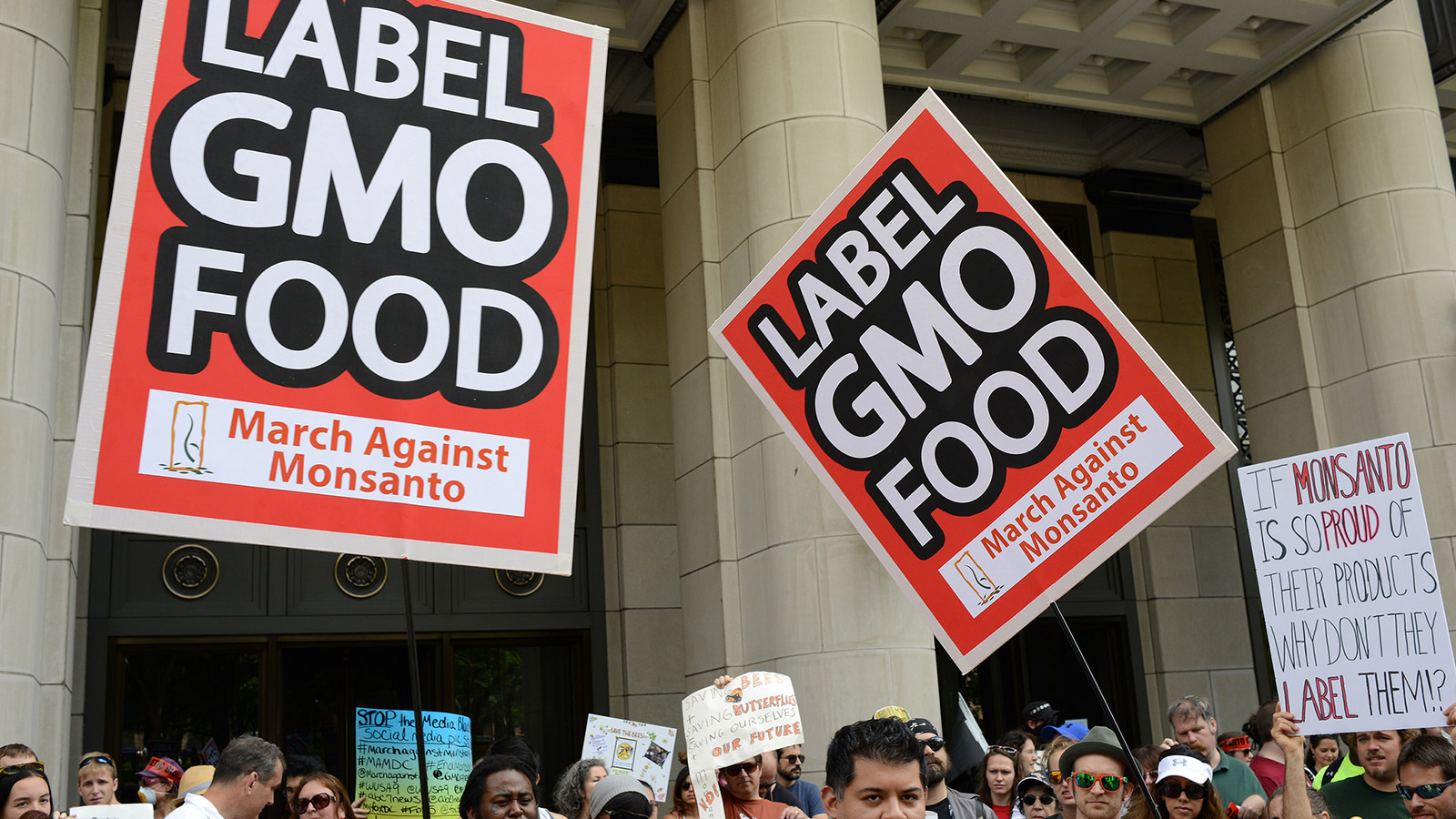Watch your step: Genetically modified foods (GMOs) have ended up on the congressional floor again. Tomorrow, the House will debate a largely Republican-backed bill that would bar the FDA from requiring GMO labeling, permit voluntary labeling on behalf of producers, and set up a non-GMO certification program. H.R. 1599, dubbed the Safe and Accurate Food Labeling Act, would also prohibit labeling of food as non-GMO if it is grown with GM seeds.
The debate over GMO safety and labeling has flared recently, due in part to a series of court cases in Hawaii and Vermont and the reintroduction of H.R. 1599 in Congress. A previous version of the bill died in committee in April 2014. Groups that campaign for GMO labeling see the bill as an abomination and have designated it the “DARK Act” — Denying Americans the Right-to-Know — because it would also preempt states that want to pass their own labeling laws. Efforts to label GMOs as such are currently underway in upwards of 20 states.
“Our goal for this legislation remains to provide clarity and transparency in food labeling, support innovation, and keep food affordable,” said bill sponsor Mike Pompeo (R-Kan.) in a statement in March. (Affordability enters the equation due to some economists’ predictions that mandatory GMO labeling would drive up the demand for — and thus the price of — non-GMO foods. Heavier GMO regulation could also necessitate separate supply chains for GMO food in order to prevent mixing.) Other elements of the bill include regulation of the word “natural” and the barring of label language that suggests that non-GMO foods are safer than GMOs.
GovTrack gives H.R. 1599 a 30 percent chance of being enacted. Still, without a current Senate complement or sponsor, the future of the bill remains uncertain, and the sprawling food fight over GMOs will continue — at least for a few more months.



